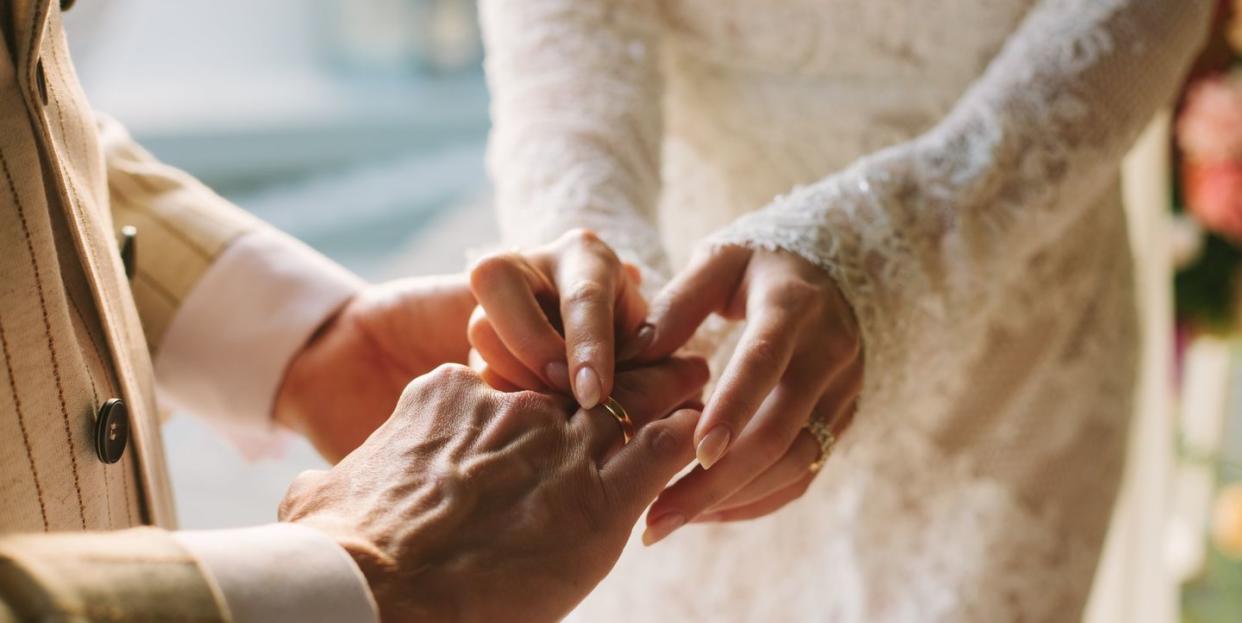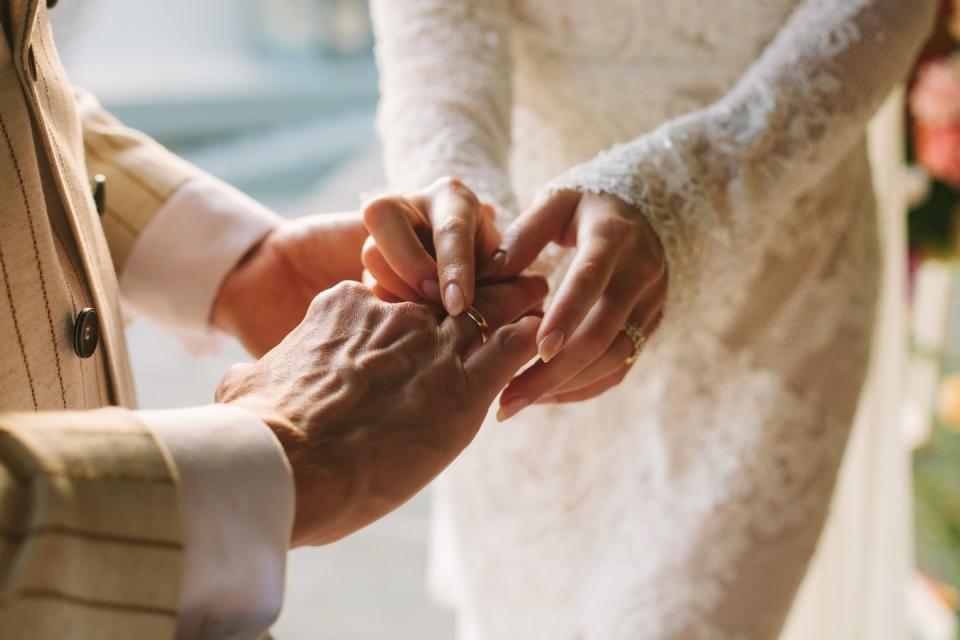Government Urged To Provide Financial Incentives For People To Get Married

Article updated on 23/08/22: Earlier this month, it was reported that Her Majesty's Revenue and Customs (HMRC) was urging married couples and those in civil partnerships to apply for a marriage allowance to help reduce the amount of tax they pay.
Now, a decline in the number of people getting married in the UK has prompted the Marriage Foundation charity to call for the Government to introduce financial incentives for people to tie the knot. It has also suggested Britain sources ways to encourage people to get married to combat the decline of weddings.
The news comes after an increase in marriages in Hungary where the government introduced pro-marriage policies. According to the Telegraph, the charity praised Hungary's success as 'nothing short of a miracle'.
Hungary's policies now include married couples receive a payment of £28,000 to be put towards buying a house. However, stipulations mean couples must have three children to receive the financial incentive so clearly, there are faults to the system.
The policies also exclude same-sex couples as currently wives aged 18-40 are able to benefit from a loan of £25,000 which can be accessed interest-free. Repayments can be reduced or suspended all together if the couple have one or two children.
Addressing Hungary's policies, the founder of the Marriage Foundation, Sir Paul Coleridge, told the same news outlet: 'No one is suggesting that Hungarian social policies should be adopted wholesale (indeed some are unacceptable).
'However, what the research demonstrates is that if the Government backs marriage unequivocally and supports this attitude with proper financial incentives, the downward trend can and is likely to be reversed.'
Marie Stopes International’s public affairs advisor Louise McCudden insisted 'there was no right or wrong number of marriages, just as there is no right or wrong number of births or terminated pregnancies'.
She said that any indication that governments should proactively encourage an increase in fertility was 'alarming'.
Article originally published on 05/08/22: Her Majesty's Revenue and Customs (HMRC) is urging married couples and those in civil partnerships to apply for a marriage allowance, which could help them reduce the amount of tax they pay.
Marriage allowance allows such couples to share their personal tax allowance if one partner earns below the personal allowance threshold of £12,570 and the other is a basic rate tax payer.
If couples can transfer 10% of their tax-free allowance to their partner, which amounts to £1,260, in the 2022 to 2023 tax year, they can reduce the tax they pay by up to £252 a year.
Provided they are eligible, they can apply at any time and backdate their claims for up to four previous tax years, which could see them receive a payment of up to £1,242.
💍Planning a wedding? Check if you're eligible for Marriage Allowance. Even if you aren’t eligible now, you could be in the future if your income (or the income of your husband, wife or civil partner) drops below £12,570 for any reason 👇https://t.co/PeRJc8xVf9 pic.twitter.com/4DBZfs3zrY
— HM Revenue & Customs (@HMRCgovuk) June 27, 2022
As for why couples should be signing up for marriage allowance? First of all, it's free to apply for, and customers should claim directly via HMRC’s online portal to ensure they receive 100% of the tax relief they are eligible for.
Furthermore, marriage allowance is one of myriad benefits and reliefs available to increase family finances during a time of uncertainty during inflation and the rising cost of living.
Angela MacDonald, HMRC’s Deputy Chief Executive and Second Permanent Secretary, said: 'We want to ensure people are receiving vital financial support at a time when they need it most. Married couples or those in a civil partnership could potentially receive tax relief worth up to £1,242, meaning extra cash in their pockets.'
As it stands, more than two million couples benefit from marriage allowance.

While couples may not qualify for marriage allowance when they first get married, changes in their circumstances could mean they later become eligible.
These may include a partner retiring and the other remaining in work, a change in employment or a reduction in working hours which see their earnings fall below their personal allowance.
Changes concerning maternity, paternity, or shared parental leave, unpaid leave or a career break, or one partner studying/in education and not earning above their personal allowance could also lead to a couple's eligibility changing.
In addition, if a spouse or civil partner has died since 5 April 2018, the surviving person can still claim by contacting the Income Tax helpline.
Marriage Allowance lets you transfer a portion of your Personal Allowance to your husband, wife or civil partner. To see whether you’re eligible please see visit https://t.co/FruFqQe3H3 pic.twitter.com/X2qYKke7c9
— HM Revenue & Customs (@HMRCgovuk) February 13, 2019
While marriage allowance is automatically renewed every year, couples should notify HMRC if their circumstances change.
In 2017, HMRC shared that more than 2.9 million couples across the UK are missing out on a free tax break worth up to £220 a year, revealing the allowance has been taken up by 1.3 million people when 4.2 million are actually eligible.
You Might Also Like


